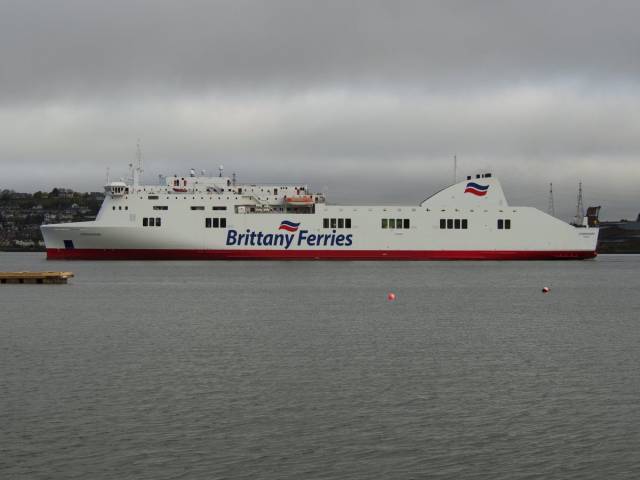Some 300 passengers and their travel plans have been disrupted this weekend, reports the Irish Examiner, following the last-minute cancellation of Brittany Ferries sailings between Cork and Santander.
Passengers received texts (yesterday) morning advising that tonight's 10.30pm ferry from Ringaskiddy, Co. Cork to Santander in northern Spain, was cancelled due to a technical problem.
One passenger, Bernice Russell, from Cork, said initially they were told the ferry would leave instead at 9am on Saturday morning, but that too was cancelled.
For more on this story click here.
Afloat.ie adds that the next sailing on the year-round route to Spain scheduled for next Monday has too been cancelled as according to Brittany Ferries. For the latest information this can be found on the operator's sailing updates page by scrolling down for Irish routes.
Afloat.ie also adds that the ferry concerned the Connemara had to vacate the single-linkspan at Ringaskiddy so to enable fleetmate Pont-Aven to berth at the terminal as it operates the Cork-Roscoff route at the weekends. The flagship is scheduled to depart to France today at 16.00hrs.
As for the whereabouts of the Connemara, the 500 passenger capacity ropax proceeded upriver of the River Lee to the Marino Point jetty which as Afloat previously reported is to be redeveloped.



























































